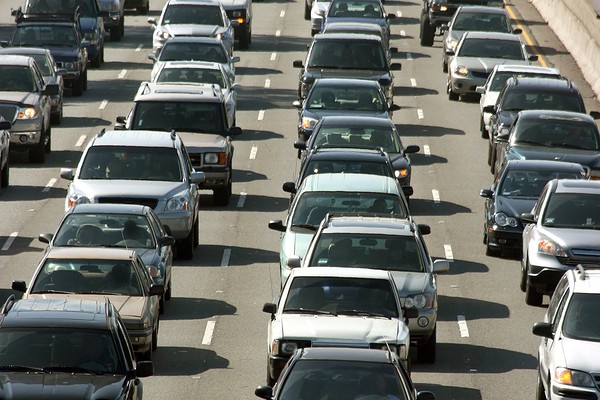
More Roads = More Traffic
June 18, 2014
Once upon a time, a major city tore down one of its most vital highways. A highway that carried 168,000 cars per day. They replaced that highway with a river, parkland and some smaller roads. And, guess what? Traffic didn’t get any worse. Instead many other things, such as pollution and quality of life, got better. It was a great day for urban planners all over the world.
How is this possible? How can it be that a reduction in highways doesn’t halt traffic and bring an industrious city to its knees?
You’d be forgiven if you have ever been stuck in traffic and thought “more lanes would help ease this congestion”. However, decades of research done by traffic engineers, economists and social scientists shows us that building more roads actually makes traffic worse. Here to explain why are the great guys writing over at Autopia:
What’s Up With That: Building Bigger Roads Actually Makes Traffic Worse | Autopia |
Cartoons and Cars… Our Favorite Things
June 17, 2014
Let’s have some good old lighthearted, nostalgic fun today with these lighthearted, nostalgic cartoons. This terrific post highlights some of history’s best cartoons, and the memorable cars that moved them. The list includes toons that some teens may be familiar with, as well as cartoons from their parents and even grandparent’s days. Enjoy:
Toontastic: The Top 10 Animated Cars of All Time
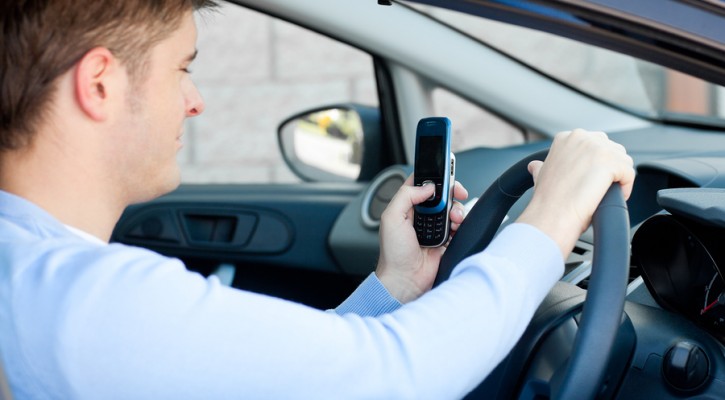
Map Apps and Distracted Driving
June 16, 2014
Using the wrong map app, or using it the wrong way, or even using it at all can be a dangerous thing to do while driving. Every millisecond that your eyes are off the road is a millisecond too long. In the realm of distracted driving, map apps that require you to look away from the road are right up there with texting, dialing phone numbers and taking selfies while behind the wheel.
This issue has caught the attention of the Transportation Department, which is seeking the authority from Congress to regulate navigation aids of all kinds, including smartphone apps.
Much like the regulation of mechanical features on cars (such as seat belts, brakes, exhaust, etc.), the proposal would give the National Highway Traffic Safety Administration authority to regulate navigation aids. However, advancements in smartphone technology move much quicker than any mechanical changes in cars, and tech companies claim that it would be impossible for laws to keep up with the ever-evolving world of smartphone features. Meanwhile, automakers largely support the measure, and are already complying with voluntary guidelines for their built-in navigation systems.
What everyone needs to remember is that distracted driving is the issue. Whether we see more regulations or not, people will continue to be distracted by cell phones, putting on makeup, and even reading good old-fashioned maps. These distractions will result in moving violations, collisions and fatal crashes.
So, what can we do about it? We can create awareness and share knowledge, that’s what. We can use technology to cure technological problems. Volkswagon’s recent viral video is a prime example:
That short, yet powerful video has reached millions of people in just a matter of days.
5 Car Smells That Mean Trouble
June 14, 2014
What’s that smell? If it’s not spilled drinks, moldy food or smelly sports gear, then you might be in trouble. Knowing what smells mean car trouble could help you save your engine before it’s too late. So, keep a nose out for these 5 car smells that mean trouble:
Pancakes
There’s no IHOP in sight, and yet you distinctly smell that syrupy-sweet scent of pancakes. Chances are, you have a coolant leak. That is not good. It could also be a leaky radiator hose, or a problem with the heater core. Either way, it’s important to get that checked out ASAP.
Rotten Eggs
Unless you forgot about that egg carton you were planning to throw at houses last Halloween, the smell of rotten eggs could mean death for your car – or at least your catalytic converter. That is never a cheap fix, however, many new cars cover the cat (catalytic converter) under warranty.
Hot Oil
The smell of hot oil is a sign of an oil leak: specifically, oil is leaking onto your exhaust manifold. If you see smoke coming from the exhaust, then it’s the valve cover. If you see oil on the pavement, then it’s the crankshaft.
Burning Carpet
This smell usually means your brake pads are bad, or could be a sign that you left your handbrake on by mistake.
Burnt Rubber
If you smell burnt rubber then pull over immediately and make sure none of your hoses or belts are resting on the hot engine. If not, it could also mean that a belt has become loose or is about to break. If so, replace it as soon as you can.

Road Trip: Is Your Teen Ready?
June 13, 2014
When are teens ready to experience the euphoria of life on the open road? When are the capable of handling the complexities of long distance driving and road trip planning? As a parent, you may feel the urge to say “never”, or at least not until they are in college. However, teens may already be feeling an uncontrollable urge to hit the road with their friends and spend a few days away from their parents, their home town and their all-too-familiar home life. If you are a parent grappling with this perplexing problem, then this post is for you:
http://www.roadtripamerica.com/travelplanning/Teenage-Road-Trip.htm
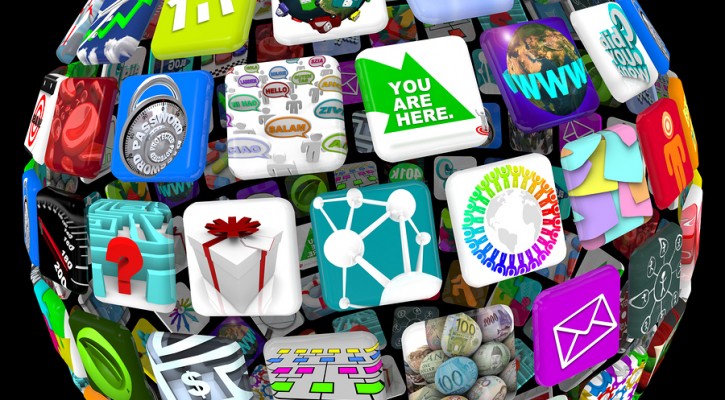
5 New Ways to Save on Gas
June 12, 2014
This is the modern age, with modern-age technology like smartphones, social media, and cutting-edge car apps, there are more and more ways to save on gas every day. Here are five of them:
1. Gas Mileage Apps. Like everything else, there’s an app for that. Gas mileage apps can be found for multiple devices at a full range of prices. This list from Edmunds.com features iPhone apps for 99 cents or less, complete with road test reviews so you can make an educated decision. There is also the pricier – and oh so more sophisticated – Automatic app, which plugs into your car’s diagnostics port (standard on every U.S. vehicle since 1996) and communicates with your smartphone. This bad boy not only tracks your gas mileage more accurately and precisely, but also tracks local gas prices, detects fill ups, reports accidents, helps find your car in a crowded parking lot, and tells you why the check engine light is on. Plus, the Android version can help drivers stay focused by silencing your phone while on the road.
2. Social Media & Carpooling. It’s easy to use social media to set up carpooling, especially for students and coworkers commuting to the same daily destinations. Just send out a carpooling post or tweet, or create a group or event and see how many friends are eager to save on gas money with you.
3. Ride Share Websites. There are a TON of ride share websites popping lately. Sites such as Zimride.com, eRideShare.com and Ridester.com have been around for a while, and new ones are joining the web every day. Many states and cities have local websites, and some brave souls have had success using craigslist.
4. Gas Price Websites. Websites such as gasbuddy.com, gaspricewatch.com, and fuelmeup.com can show drivers where to find the cheapest gas in their local cities.
5. Dashboard MPG Tracking. Many new cars and trucks feature gas mileage tracking right on the dashboard. This real-time information helps drivers adjust their driving habits to squeeze more miles out of every gallon.
Isn’t modern technology a wonderful thing? Try out these new ways to save on gas and see how many more miles you can squeeze out of every dollar this summer.
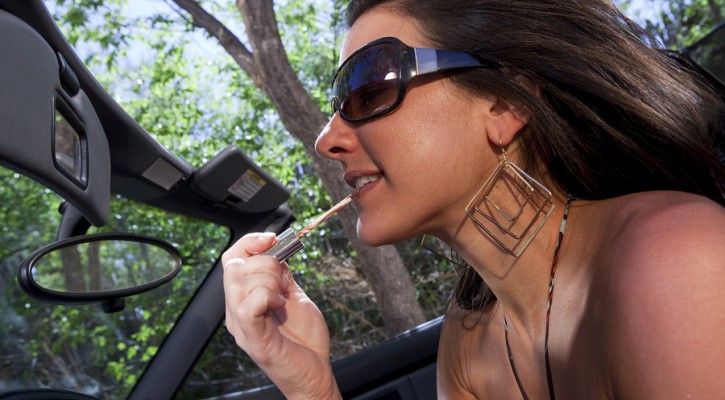
Take the Distracted Driving Quiz
June 11, 2014
We all know that distracted driving is bad. But, what is distracted driving exactly? This hilarious quiz from the fine folks at Car Talk demonstrates just how multifaceted the term “distracted driving” can be. Here are some of our favorites:
While driving do you…
– Brush your teeth, gargle and spit
– Eat anything that takes two hands, like a Big Mac or Moo Shu Pork
– Try to build a scale model of a nuclear reactor
– Discipline your dog, cat or pet ferret
– Focus on removal of obstinate nose or eyebrow hair
– Yell at either Rush Limbaugh, Air America or Click and Clack
– Perform complex removal of spinach or other food products from between teeth, including use of mirrors
You would be surprised at how many people answer “sometimes” and “always” to these types of questions!
Humor is an effective tool for getting to the heart of an issue, especially distracted driving. How many drivers have you seen distracted by funny habits such as nose-picking, headbanging or chest shaving? It’s not always cell phones that cause crashes, but other terribly embarrassing things as well.
So spread the knowledge and awareness of distracted driving by sharing the humor. If you do, then we’ll buy you a pony!
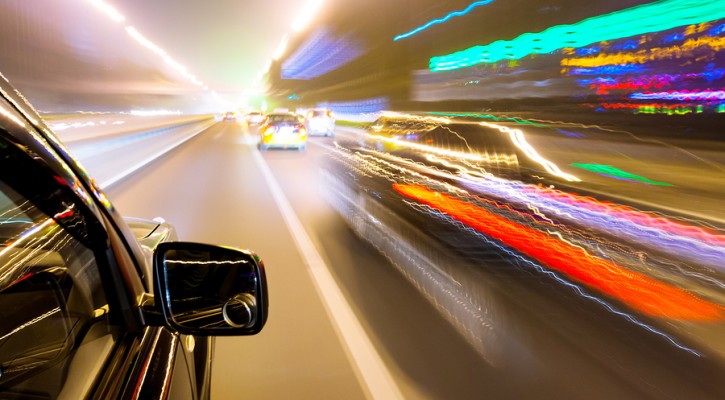
Anticipation: An Essential Survival Skill
June 10, 2014
As many new drivers will come to learn, there are a lot of idiots on the road. People drive carelessly, aggressively, emotionally, and are often distracted by phones, passengers, or just life in general. When it comes to avoiding these risky drivers, anticipation is key.
The first rule of anticipation? Give yourself plenty of time and space to watch, see and react. The farther your following distance, the bigger the picture. If you are tailgating the vehicle in front of you, all you can see is their bumper. However, if you hang back a few more car lengths you will be able to see the road ahead and the traffic ahead. You will be able to estimate the speed of traffic overall, as well as be able to spot any drivers traveling drastically slow or dangerously fast and manoeuvre around them. Plus, the bigger the cushion the more time you have to react to quick stops and emergency situations.
The second rule of anticipation: see everything. Don’t just focus on the car in front of you. Know what is going on a mile down the road, check your mirrors and blind spots, and keep a visual of the traffic all around you. Take note of any risky drivers, like maybe a car coming up from behind that is weaving in and out of traffic or a large truck riding your bumper. Besides weavers and tailgaters, also keep an eye out for drivers who are swerving (either due to distraction, fatigue or intoxication). These are all vehicles you will want to avoid and/or pass with extreme caution.
Finally, know that most drivers don’t follow the law all the time. They will turn without warning, change lanes without blinkers, cut people off in traffic, ignore yield signs, forget right-of-way rules, and sometimes even run right through stop signs and red lights. To anticipate this behavior it is important to follow the first two rules mentioned here, and then make judgments based on the other driver’s actions, speed and behavior.
Anticipation is an art. Mastering it will allow you to navigate the nation’s roads without incident and live a nice, safe life as a responsible driver.
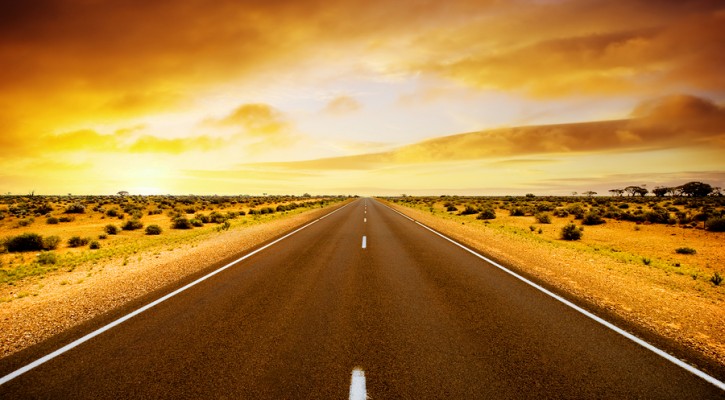
Five Car Components to Protect This Summer
June 9, 2014
Don’t let summer eat your car! Park it in the shade whenever possible to protect vital car components from the effects of extreme heat. During the hottest days of summer, these are the big five things to look out for when temperatures soar into the triple digits.
All drivers can benefit from a few basic summer car care tips. Learn the big five to help your vehicle survive this summer’s heat wave:
Gas
Don’t worry, you’re probably not going to blow up or anything. However, driving and fueling up during the hottest time of day (around 2 PM – 4 PM) will waste much more gas and seriously drain your wallet.
Battery
High temperatures destroy car batteries. The heat causes battery acid to evaporate, dramatically shortening its lifespan and leaving drivers stranded during the hottest days of summer. By parking in the shade, regularly testing your battery, and replacing batteries older than 3 years, you can prevent the hassle of suffering through a dead battery. Also, it couldn’t hurt to always keep a set of jumper cables handy.
Windshield Wipers
Yes, your windshield wipers can melt – well, sort of. Triple digit temperatures cause wipers to get stuck to the glass, a result of slight deterioration caused by extreme heat. This can be dangerous if you happen to press your windshield washer button while driving and the wipers fail. However, you can prevent wipers from sticking by simply using them on a regular basis. So go ahead press that windshield washer button when you start the car each morning. That way you’ll have a clean windshield and reliable wipers.
Tires
The risk of catastrophic tire failure is much higher when temperatures soar. In mild weather, a damaged or improperly inflated tire may just go flat, while in hotter weather it could cause a more serious blowout. Catastrophic tire failure often results in more dangerous auto accidents and even rollovers and deadly collisions. By checking for tire damage and proper inflation regularly, drivers can prevent suffering through a summer tire blowout. Since temperatures can vary up to 30 degrees in the summer – from a 100-degree day to a 70-degree night – it’s important to check your tire pressure daily.
Transmission
Because summer time is also play time, many drivers hook up the boat or camper trailer during this time of year. However, many new drivers fail to check and see if their transmission can handle the strain. Pulling too much weight can be a transmission killer. However, a little bit of towing knowledge and some auxiliary transmission oil cooler protect your vehicle when towing the boat or jet ski. It’s best to leave the bigger, heavier trailers to heavy-duty trucks.
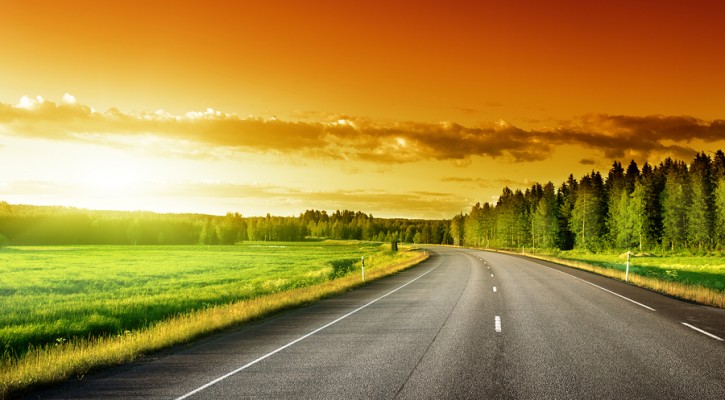
Here Comes the Sun: Summer Car Care Tips
June 7, 2014
That great ball of fire in the sky, our beloved sun, seems to be growing hotter by the day. Its awesome power can cause some serious damage to vehicles in the summer – from cracked paint to smoking engines – so it’s important to know a few basic summer car care tips.
Don’t Let Your Battery Burn Out
Extreme heat can destroy your vehicle’s battery. Hot temperatures cause battery fluid to evaporate, and that interior damage will eventually lead to a dead battery, leaving you stranded (possibly with a car full of quickly-spoiling groceries). Drivers can prevent this inconvenience by taking a few precautions:
- Keep the top of the battery clean. Dirt and dust become conductors, which drain battery power. Plus, the corrosion accumulated on battery terminals becomes an insulator, which inhibits current flow.
- Check battery fluid regularly. If you have the type of battery that needs to be topped off, check it often during these high-temperature summer days. Add distilled water when necessary.
- Test battery at every oil change. Most automotive shops and some auto parts stores have electronic testers available that can give you a snapshot of your battery’s condition.
- Replace battery on it’s way out – not after it dies. Or better yet, replace your battery every 2 – 4 years (or whenever the warranty is up) and save yourself some trouble.
Keep it Clean
Dirt, sand and debris on the surface of your car and engine can cause permanent damage. Visit the car wash often, especially after a trip to the beach. Be sure to use engine cleaner and finish with coat of wax to protect your paint from the sun, as well as repel future dirt, debris and water spots.
Park it in the Shade
This is an obvious one, however, finding that shade is sometimes very difficult. When there is no available tree cover or parking garages, you can use timing and infrastructure to find shade on the hottest of days. In the AM, drivers can find shade on the west side of taller buildings, and in the PM, the shade will be on the east side of buildings.
Windshield Cover
Using a windshield sunshade will keep your car’s interior much cooler. It also prevents deterioration of the dash board, steering wheel, center console and car seats.
Crack Your Windows
This little bit of ventilation makes a huge difference in your vehicle’s interior temperatures. Remember, cracked windows will prevent cracked car seats.
Keep these pointers in mind, and this summer won’t be too terribly rough on your ride. Knowing about summer car care tips is a good way to help your vehicle live a long and happy life.
